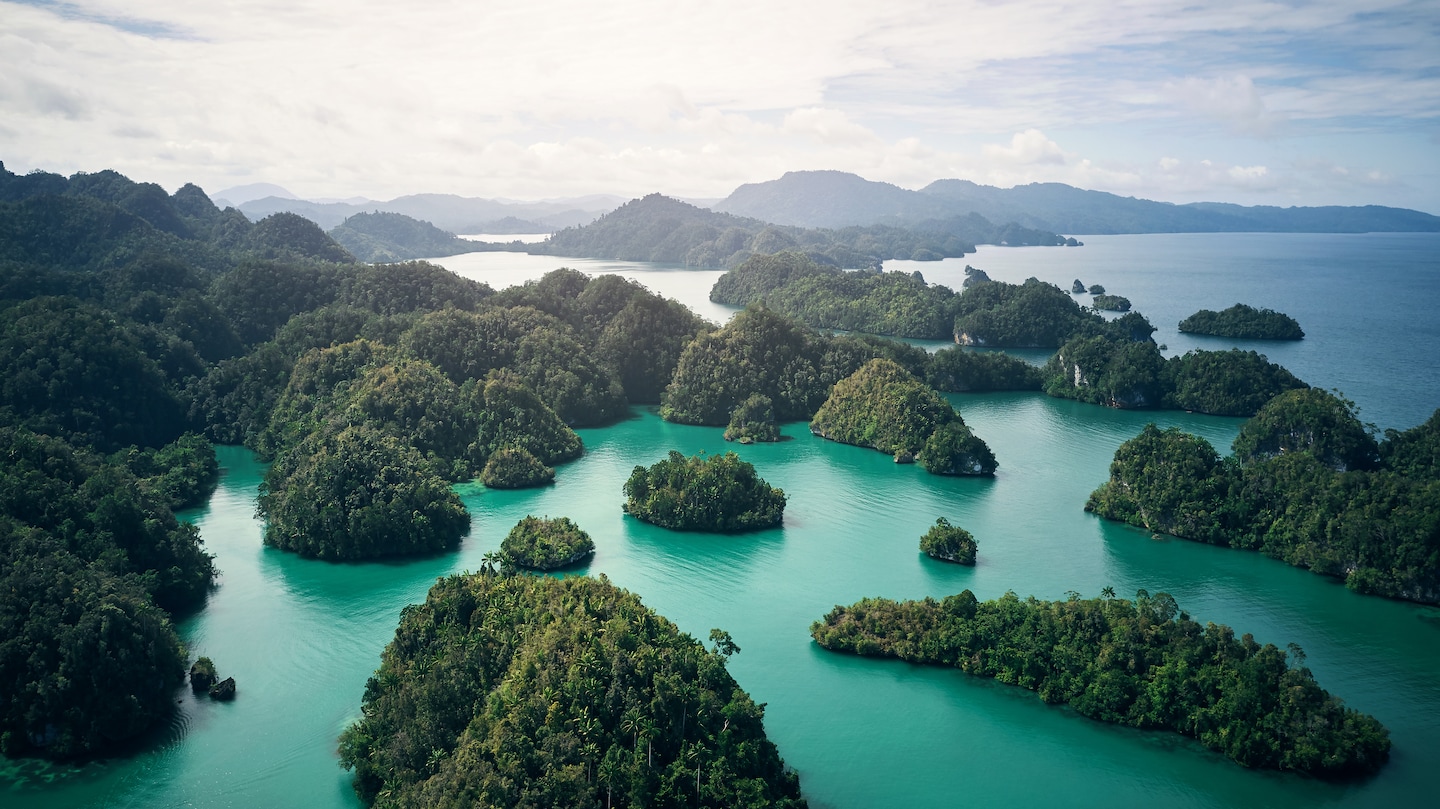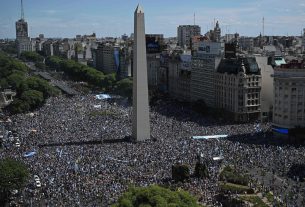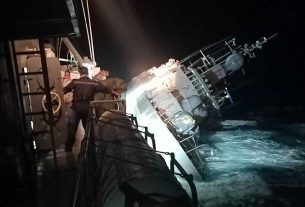The Widi Reserve, an archipelago in North Maluku province, is located in a biodiverse area known as the “Coral Triangle,” which is home to endangered animals such as sea turtles, humphead wrasse and whale sharks.
In the listing for the sale, Sotheby’s describes the archipelago as “one of the most breathtaking properties anywhere on Earth” and a “secluded, otherworldly paradise,” with coral reefs and 150 kilometers (93 miles) of beaches. The auction house also outlines possible amenities to come: an airstrip for private jets, luxury “eco resorts” and an international airport.
But jet-setters might not be visiting the paradise so soon. Amid public outcry, the sale, which was originally scheduled to begin Dec. 8, has been moved to late January.
The Ministry of Maritime Affairs and Fisheries said in a statement released on Dec. 5 that PT Leadership Islands Indonesia (LII), the company managing the islands, had not obtained the proper licenses to proceed with the auction, including a utilization permit that would address environmental concerns.
“The approval is required by beneficiaries when they are going to conduct sedentary activities in the sea, both in coastal areas and small islands,” the ministry’s statement said.
LII said in an email to The Washington Post that it has been working with the government since 2014 on the project and has numerous “licenses, permits, approvals and government recommendations in hand.”
Zackary Wright, Sotheby’s executive vice president for the Asia Pacific, told The Post by email that the change is in response to “overwhelming interest” in the sale and “to allow more time for interested buyers to work through due diligence.”
Controversy around the sale highlights increasing global scrutiny of the uber-wealthy’s impact on the environment — whether they’re hopping time zones in high-polluting private jets or sailing in diesel-guzzling superyachts. The uproar also echoes wider concerns about tourism’s effect on the environment in destinations from the Himalayas to the Amalfi Coast in Italy.
Selling the rights to use islands in Indonesia, which has more than 17,000 of them, is nothing new, said Muhammad Yusuf Sangadji, executive director of Jala Ina, an activist group in the Maluku islands focused on ocean preservation and coastal communities. But the huge scale of this particular sale — which includes an entire reserve rather than just a few islands — and the fact that information about it is easily accessible online have caused it to go “viral,” he said.
“I think it’s the first time an auction this big was conducted openly, so [people] on social media can access it. It’s different from the previous sales,” he said, pointing to an auction of islands in Indonesia’s Thousand Islands. “Usually, sellers go straight to the market.”
In response to criticism that land was being sold off to foreigners, LII clarified via email that “Indonesian law does not permit the private ownership of islands by foreigners, nationals, or companies. What is being auctioned is a portion of interests in LII in return for the rights to join this development mission,” it said.
Okki Soebagio, a spokesperson for LII, said it will develop less than 0.005 percent of the reserve, making it the “lowest density private island resort development in the world.”
“Large-scale conservation is at the heart of the company’s vision and drive,” Soebagio said.
Environmentalists are not convinced. “Sustainable tourism is a discourse. We just talk about it, but we don’t implement it,” said Yusuf of Jala Ina. “There is no evidence of sustainable tourism in Indonesia.”
Even small things — like snorkeling — can have an impact on the environment, he said.
Afdillah, ocean campaign team leader at Greenpeace Indonesia, who goes by a single name, shared Yusuf’s concern, calling eco-tourism “an empty promise.”
“We firmly believe there is no such thing as ‘sustainable development’ on reserves and that the best way to preserve them is just to let them be. In fact, we, humans, must try to expand them,” he said, adding that resorts, port and airport runways would change the landscape.
The auction is also “a serious violation of the rights of coastal communities and traditional fishermen who live around the reserve,” said Afdillah, who countered Sotheby’s claim that the reserve is “uninhabited.”
“In Indonesia, not a single island or sea area is ownerless,” he said.
Charmila reported from Jakarta and Ables reported from Seoul.



